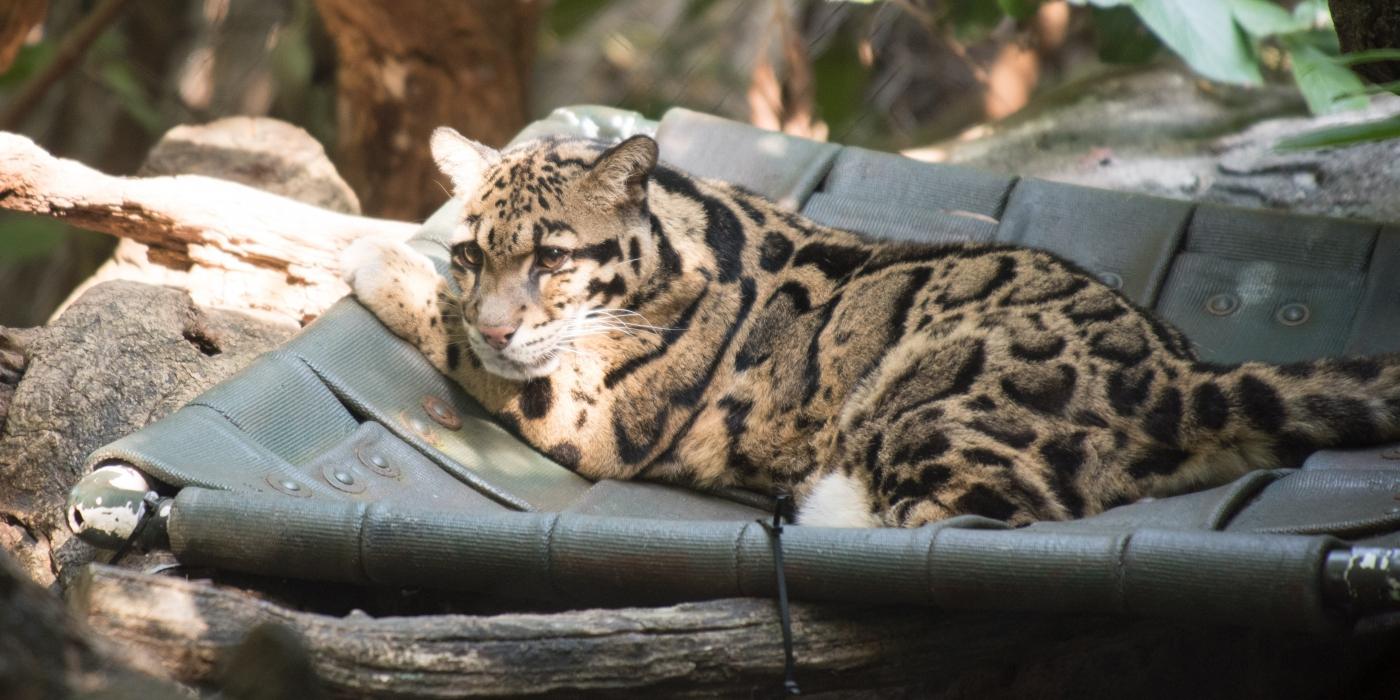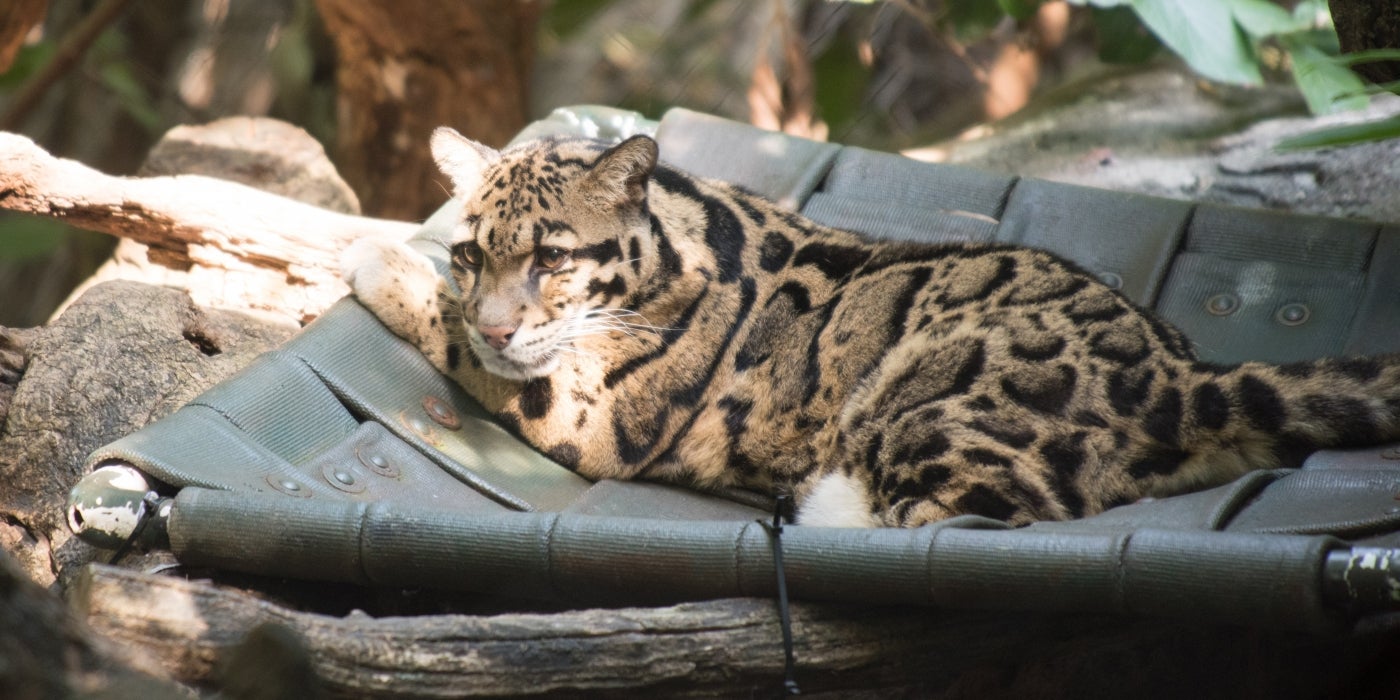Elderly Clouded Leopard Dies at Smithsonian’s National Zoo

Asia Trail keepers at the Smithsonian’s National Zoo and Conservation Biology Institute are mourning the loss of Mook, an elderly female clouded leopard who was humanely euthanized May 20 due to a recent and irreversible decline in health. At 18 years old, she was the oldest clouded leopard in the North American population. In human care, clouded leopards have a median life expectancy of about 12 years. A final pathology report will provide more information in the coming weeks.
Recently, animal care staff noticed that Mook was having difficulty moving around her habitat. Clouded leopards are primarily an arboreal species, and the advanced osteoarthritis in her wrists and knees made it difficult for Mook to move through the trees. Although this degenerative disease does not have a cure, keepers and Zoo veterinarians tried to ease her discomfort and improve her overall quality of life with medications and therapies. Mook was also diagnosed with chronic kidney insufficiency and, most recently, a urinary tract infection. Despite treatments, her condition did not improve as staff had hoped. Given Mook’s poor prognosis and declining quality of life, animal care staff made the decision to humanely euthanize her.
Mook arrived at the Zoo Aug. 11, 2006, from Columbus Zoo in Ohio as part of the Association of Zoos and Aquariums’ Species Survival Plan (SSP). She was one of the first clouded leopards exhibited at the Asia Trail habitat when it opened in 2006. Many Zoo animals participate in the SSP; its scientists determine which animals to breed by considering their genetic makeup, health and personality, among other factors. Mook was paired with a male named Tai, but they did not have any offspring. Tai was humanely euthanized in November 2015 after a veterinary exam revealed cancerous masts that metastasized in his chest. For more than 14 years, Mook served as an educational ambassador for her species, teaching Asia Trail staff and countless zoogoers about the biology and behavior of clouded leopards.
Keepers fondly remember Mook as a shy and reserved cat who seemed to enjoy making her caretakers work to earn her respect and affection. Those who proved themselves to Mook would receive a good morning “chuff”—a friendly vocalization—and a cheek-rub against the mesh. Several keepers who have worked with Mook since her arrival say that her dignified and graceful presence will be greatly missed, and she has set a very high bar for the Zoo’s playful 1-year-old juveniles, female Jilian and male Paitoon.
The Zoo and Smithsonian Conservation Biology Institute (SCBI) have been studying clouded leopard behavior, biology and ecology for decades. In 1981, SCBI welcomed the first cub born at the research facility. In the decades that followed, its scientists and keepers studied the species to create an insurance population against extinction. In 2010, a new breeding and science center was completed at SCBI that can house up to 10 clouded leopards. One of SCBI’s research focuses has been on creating assisted reproductive technologies to use as tools to help the species.
Clouded leopards are listed as vulnerable in the wild by the International Union for Conservation of Nature. It is estimated that there are about 10,000 clouded leopards in the wild. Threats to the species include habitat fragmentation, deforestation and illegal wildlife trafficking.
As a public health precaution due to COVID-19, the Smithsonian’s National Zoo and Conservation Biology Institute is temporarily closed to the public. Upon reopening, visitors to the Asia Trail habitat can view the Zoo’s juvenile clouded leopards, Jilian and Paitoon.
Related Species:



